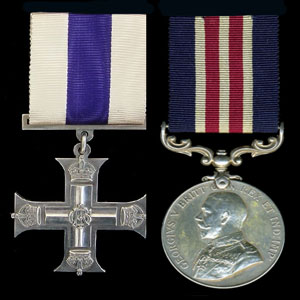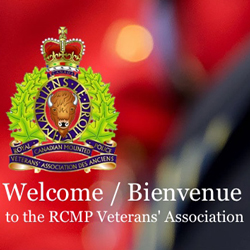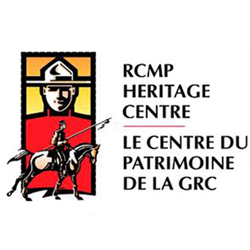Larry Burden’s This Day In The RCMP
The achievements and contributions of the Force have been built upon the individual contributions of many past Veterans. These contributions have largely been forgotten.
Veteran Sgt. Larry Burden ( #35982) served in “E” Division for 20 years has spent over ten years researching and summarizing these achievements by specific date. Nearly every day, Larry sends out an email message with a selection from his work in progress manuscript “This Day In The RCMP” to individuals interested in these historical notes.
In an effort to share his research to a large group, Larry has agreed to permit us to develop a webpage on our website. Each webpage will post Larry’s historical notations over the past week.
If you wish to contact Larry Burden or provide additional information about his research, please email him at larryburden8@gmail.com.
October 16
1895 – #536 Constable William Higinbotham galloped out from Lethbridge Alberta, with twelve men to fight a large prairie fire. After the fire that cut a path 30 miles long was finally extinguished, Cst. Higinbotham conducted and investigation and arrested and charged Robert Farrar for starting the fire by being careless with a campfire. The accused was fined $100.
1944 – RCMP vessel St. Roch arrives back in Vancouver.
1953 – The Roman Catholic Church in Canada issues a report discouraging teenagers from forming steady romantic attachments. Meanwhile RCMP members still have to have five years service and have money in the bank before they can apply for permission to get married.
1970 – The FLQ October Crisis heats up when Prime Minister Pierre Trudeau sends the Canadian Army into Montreal at the request of the Quebec government.
At 9:00 pm the day before then Quebec Premier Robert Bourassa rejects the FLQ’s conditions for freeing hostages James Cross and Pierre Laporte. At 4:00 am this day Prime Minister Trudeau proclaims the War Measures Act, giving police sweeping powers to arrest and detain without warrant anyone suspected of involvement with the FLQ.
1971 – While checking a vehicle operated by Mr. Robert B. Rempel near Fort McMurray Alberta, #27916 Cst. James Gordon Fyfe was nearly hit, when a passing car swerved towards him. As the vehicle passed it made an immediate U turn and stopped on the opposite side of the road facing him. When Cst. Fyfe approached the suspect vehicle, the driver, stepped out of his car with .308 rifle, and started shooting at him. Fyfe was hit in the left arm, but he managed to draw his revolver and shoot back, at the gunman, wounding him. Though wounded, the gunman fired again hitting the policeman in the right shoulder and knocking him to the ground. When the assailant came over to the wounded policeman Mr. Rempel struck the suspect from behind, knocking him to the ground, he then grabbed the rifle and hit him with it. Rempel then held the man down until help arrived. Had it not been for the bravery of Robert Rempel, Constable Fyfe would have been killed. Instead he recovered from his gunshot wounds and retired as a Sgt. in 1997.
1974 – #20663 Kenneth W. Pitt, received a Commanding Officers Commendation for bravery after he rescued a woman from a domestic dispute in Powell River, BC. While he was attempting to get the victim out of her suite he common-law husband, Thomas Light, was reloading his pistol. Before Constable Pitt could get back inside, the gunman, committed suicide.
1987 – Corporal J.J. Euale was awarded a cheque for $1500.00 along with the Treasury Board Merit Award for his self-initiated research that showed that sightless people possess 13% better greater hearing abilities than sighted people. His research led to the hiring of blind personnel to work as transcribers for intelligence transcription duties. This was only the third time in the history of the RCMP that this award has been given to a member of the Force.
1982 – Honour Roll Number 170.

Newspaper article photograph of Constable Douglas Butler’s funeral (Source of article – RCMP Gravesite database).
#36327 Constable Douglas Ambrose Mark Butler age 21 was killed in a police motor vehicle accident, near Oxbow, Sask.
At 2:00 am, #34610 Cst. David Devine was traveling in an unmarked police car on Highway #18 near Oxbow, Saskatchewan, when he saw a late model Trans-Am speeding towards him. When he turned his police car and sped after the violator with his emergency lights on, the sports car accelerated. Giving chase, Constable Devine radioed to Cst Butler who was then entering Oxbow from the opposite direction.
Shortly thereafter Constable Devine discovered that the suspect vehicle had collided with Constable Butler’s vehicle that had been placed across the road, in an attempt to stop the fleeing vehicle. The force of the impact had demolished the police car and flipped it onto its roof. Constable Butler along with two of the three occupants of the Trans-Am was killed on impact.
Constable Douglas Ambrose Mark Butler had joined the RCMP on September 30th, 1980 and was engaged to be married to his fiancé back in Newfoundland. His remains were transported back to his home in Upper Island Cove, Newfoundland, where he was buried in the local cemetery.
1987 – #29814 / O.1782 Corporal Daniel Fudge was awarded the United States Secretary of Defense Medal for the arrest of Charles McVey at Teslin Lake. McVey was on the US most wanted list after he was charged with selling classified computer technology to Soviet Union. He fled from the United States and found his way to Teslin Lake on the BC / Yukon border. Corporal Fudge the Detachment Commander at Atlin, B.C. recognized McVey from a FBI Wanted Bulletin.
1992 – Marine Section members #28354 Douglas Scattergood, #32171 Stuart McLea and #43298 Cst A.R. Wilson received commendations after they rescued two people from a grounded fishing boat in a gale at Masset harbour, on the Queen Charlotte Islands in British Columbia.
October 17
1877 – On this day Major James Walsh of the North West Mounted Police hosted a meeting between the American commander of US troops on the Dakota Territory, General Alfred Howe Terry (1827-1890), and the Lakota Sioux leader Chief Sitting Bull in an attempt to negotiate a truce.

Photograph of Sitting Bull (Source of photo – RCMP Veterans’ Association – Vancouver Division’s photo collection).
The Souix had crossed the border into Canada 11 months before after they defeated George Custer and the Seventh Cavalry at the battle of the Little Big Horn on June 26, 1876. The Sioux had come to Canada to join their cousins the Assiniboine at Wood Mountain, and in December Walsh had met with them to advise them that because they were American treaty Indians, they were not eligible for Canadian provisions and reserves. In addition he warned them about raiding into the US. The meeting between General Terry and Sitting Bull was unsuccessful. After enduring several hard winters, and facing starvation Sitting bull led his people back to the United States and surrendered at Fort Buford on July 19, 1881.
1878 – Canada’s first Prime Minister Sir John A. MacDonald (1815-1891) is re-elected and returns to power (formerly July 1, 1867 to Nov. 05, 1873) and holds office until June 6, 1891
1913 – At 8:30 pm, #4673 Constable Gordon Colin Bates fell to his death after he stumbled headfirst in an open well behind the Athabasca Hotel in Athabaska Alberta.

Photograph of the gravemarker for Constable Gordon Colin Bates (Reg. #4673) (Source of photo – RCMP Gravesite database).
The open well was 30 feet deep and had four 4 feet of water in it. His friends, who heard the noise in the darkness, assisted Town Constable Turndrip, in retrieving his body from the well. In 1915, twenty-seven of his comrades shared the cost of a tombstone that reads; ” To the memory of Gordon Colin Bates, Constable in the Royal North West Mounted Police who died at Athabasca on the 17th October 1913 Aged 28 years” “Rest and Sleep, It will be morning soon” Erected by his Comrades of “N” Division RNWMP.
In 1964 members of the RCMP rediscovered his forgotten grave when a letter from Mrs. Constance E.B Tracy of Birmingham, England wrote to the RCMP enquiring about the location of her late uncle’s grave. She traveled to Canada on a three-month tour and visited the gravesite on July 4th, 1964.
1952 – Retired Corporal #7613 Alfred Dudley Mason, died at the age of 64.

Photograph of World War I military medals similar to the ones awarded to Corporal Alfred Dudley Mason. The Military Medal (2nd from the left) is missing the ‘bar’ which was also awarded to Alfred Mason.
He had joined the RNWMP in 1919 after a brilliant military career in World War One, as a Captain with the Canadian Forces. On April 9, 1917 he won the Military Medal for conspicuous bravery at Vimy Ridge. At the Nieppe Forest in 1918, he won the Military Cross and then received a bar to the Military Medal at Monchy, France in September 1918.
1970 – The body of Quebec Labour Minister Pierre Laporte is found in the trunk of a car parked beside a hangar at the St-Hubert Airport. Members of the FLQ (Front de libération du Québec) had strangled him with the chain of a religious medal. The murderers were eventually sentenced to lengthy terms in prison but only served terms ranging from seven to eleven years. Canada Post issued a stamp a year later in his memory but recorded the year of his death incorrectly as 1971 instead of 1970.
October 18
1963 – #21666 Constable Samuel L. Bailey came to the aid of a man who had been blown overboard when the engine on the barge he was working on exploded. After being hauled aboard bleeding profusely from his partially severed leg, Constable Bailey located the leg’s main artery and applied pressure to it to stem the flow of blood. He then assisted the ambulance attendants with the application of a tourniquet. Both the Coroner and the attending physician credited Bailey’s efficient efforts in saving the man’s life.
1971– #16630/O.737 Sub-Inspector Bruce Lionnel Northorp C.M earned a Commissioners Commendation for his actions in dealing with an emotionally disturbed armed man who had hijacked an aircraft from Anchorage Alaska. Northrup succeeded in talking the man into turning over his revolver to him and surrendering without incident.

Photograph of Constable Allister D. MacIntyre – Reg. #29201 (Source of photo – Sheldon Boles).
1979 – #29201 Corporal Alister D. Macintyre along with Mr. Barry Dean Moffat removed two occupants from a vehicle that had collided with a utility pole in Drumheller Alberta. They then performed CPR resuscitation on Mrs. Hilda Petrie until the ambulance arrived. For actions in saving her life both men were awarded Meritorious Certificates from the St. John Ambulance Society.
1985 – #16087/O.610 Chief Superintendent Hugh Adams Feagan is promoted by the Governor General Jeanne Sauve’to Knight in the Most Venerable Order of the Hospital of St. John of Jerusalem. Very few Canadians have achieved this level of the Order, which receives Royal Sanction by the Queen.
October 19
1891 – While searching for whiskey smugglers, three members of the NWMP found themselves in an armed standoff with local Indians. Constables #683 Christopher Hilliard, #752, Thomas Ryan and #2119 William Alexander sighted a group of riders with packhorses and gave chase. When they confronted two natives, one of the suspects, “Steals Fire” turned and shot Constable Alexander at close range hitting him in his neck. Constable Ryan then drew his revolver and shot the gunman in the chest.
When the other natives heard the shots, they converged on the three constables and took the wounded native away. The wound to Constable Alexander’s neck was not serious and he fully recovered from his injuries.
The entire event was included in the 1913 book “The Range Men” by L.V. Kelly. Constable Hilliard joined the NWMP in 1882 and he retired in 1904 a Staff Sergeant. Ryan joined in 1882 and served until 1897. Constable Alexander had the shorter career having joined the NWMP in 1888 and took his discharge in 1894.
1986 – A drunken man on Broughton Island (now Qikiqtarjuaq, Nunavut) was threatening local residents by repeatedly firing shots from his rifle. Detachment commander #31050 Corporal J.W. Powers along with Renewable Resources Officer, David Kooneeliusie went looking for the suspect and when they encountered him, he threatened to shoot Cpl. Powers but both men were undeterred by his threats and overpowered and arrested him. For their actions they were awarded the Commanding Officers Commendation for bravery.
2001 – RCMP members #36425 G.W. Plustwa #40909 M.M. Marshak, and #48090 Paul Meyer were dispatched to the Canadian Armed Forces camp in Wainwright Alberta, to assist the Military Police in dealing with a mentally disturbed woman. The member of the military was armed with handgun and was threatening people with it.
While the members were attempting to negotiate with the woman, she fired nine shots at the police officers and it appeared she was trying to commit suicide, by having police officer kill her. Suddenly the woman advanced on Plustwa, pointing her firearm at him and threatening to kill him. He then took aim and shot her in the arm. She was then subdued and taken to hospital.
All three policemen along with four soldiers received the Commissioner’s Commendation for Bravery.
October 20
1936 – The Village Constable, in Laird Saskatchewan, had been asked to arrest Mr. George White and bring him to the detachment in for an interview. While being questioned by #10703 Constable John Williams, the suspect produced a pistol and shot him in the face.
George White then locked both policemen in a jail cell and fled the scene. After the pair was discovered, Constables #10431 Joseph DesRosiers and #10816 Thurman Guthrie began searching for the gunman. As they approached a haystack in the Village of Laird, the gunman suddenly emerged and pointed his pistol at Constable Guthrie. The policemen ordered him to drop his gun, but when he attempted to shoot, the two constables shot and killed him.
Constable John Williams recovered from his gunshot wound and retired from the RCMP in 1958 as a Sergeant.
1943 – Honour Roll Number 75.

#O.298 Surgeon Maurice Powers, age 38, was killed in an airplane crash, near Red Pheasant, Sask.
At the time of his death, Surgeon Maurice Powers was the leading Canadian expert in the field of forensic science and the first person to receive the degree of Doctor of Medical Science in Forensic Medicine from New York University. After joining the Mounted Police as a commissioned officer with the position of Surgeon in 1937, he helped establish the RCMP Crime Laboratory, and lectured extensively across the country.
Powers was testifying at an inquest into the death of two people, in North Battleford Saskatchewan. When the inquest ended, the Royal Canadian Air Force offered him a flight back to Saskatoon. The weather had been poor all day and had not improved much when his plane departed at 10:30 pm. His plane never arrived at Saskatoon. The next day, the Air Force began a search for the downed aircraft and located the wreckage strewn across hundreds of feet of the Eagle Hills on the Stoney Indian Reserve, four miles north of the village of Red Pheasant.
Weather was determined to be the primary cause of the tragedy. Maurice Powers had joined the RCMP in January 1937 as a Special Constable and then promoted to Surgeon in August of the same year. After a huge funeral service in Regina, he was interned in Notre Dame Cemetery in Ottawa. His wife Marguerite and two young children survived him.
1984 – Five members of the RCMP earn The Star of Courage when they rescued two people from burning house, in Burnaby, BC.
#30721 Constable David Gerald Otterman, SC
#32088 Constable Walter Alexander Burns, SC
#36063 Constable John Christopher Kennedy, SC
#36981 Constable John Richard McDougall, SC
#37352 Constable Andrew William Lamb, SC
At 3:45 a.m. Burnaby British Columbia Detachment Constables Gerald Otterman, and Walter Burns arrived at the scene of a house fire. The upstairs residents advised them that the basement apartment was occupied and it was believed that two people were inside, so the two constables went to the back of the house and broke a window to call inside to the occupants. After getting no response, the pair was then joined by Constables Christopher Kennedy, John McDougall and Andrew Lamb; and they broke down the door and entered the house on their hands and knees, but they were quickly driven back by intense heat and thick smoke. With Constable Burns as back up, Lamb and Otterman re-entered the burning building and found an unconscious man in the living room. As they proceeded to drag the victim toward the door, Cst. Lamb was overcome by the smoke and was forced to leave.
Cst. Burns then entered the blaze and he and Cst. Otterman managed to bring the first victim out to safety.
Constables Kennedy, McDougall and Otterman then crawled back into the apartment to continue the search, and found another victim in a bedroom. As they dragged her toward the exit, the smoke overcame all three rescuers were forced them to go outside for fresh air. Cst. Kennedy then reentered the building, found the victim, and dragged her outside. Though the effects of smoke inhalation hampered their attempts, all five of the policemen persisted in their perilous task until they had successfully removed the victims to safety.
On March 21, 1986, all five men were awarded the Star of Courage, the second highest honour for bravery, by the Governor General.

1981 – When RCMP members in Pincer Creek Alberta attempted to arrest twenty-six year old James Earl Kilkenny for dangerous driving, he took a woman hostage. He then fled to his residence, where two hours later he released his hostage and stated he was coming out, but would blow away anyone who got in his way.
Even though the members succeeded in flattening a tire on his truck, he managed to drive off armed with a rifle and shortly thereafter arrived at the Detachment, where he drove up over the lawn and shot out the front glass door. He then rushed inside and began shooting.
Having taken cover behind a filing cabinet, #18903 Staff Sergeant Ronald J. Grunert fired a warning shot at the gunman but Kilkenny kept shooting, so Grunert fired three more shots and wounded him, whereupon he surrendered.
On June 27, 1982 Kilkenny received a sentence of five years for a variety of charges, including attempted murder. Staff Sergeant Ronald J. Grunert was awarded the Commissioner’s Commendation for Bravery.
October 21
1874 – The newly created NWMP force re-crosses the Prairies to the Swan River barracks at Pelly Saskatchewan. Then the column divided and the rest marched back to Winnipeg.
1945 – The MacKenzie King Government brings introduced the Canadian Citizenship Act in Parliament, which and later becomes law in January, 1947. The new Act abolishes the terms ‘Canadian national’ or ‘British subject’ as the legal terms for non-aliens in Canada.


 October 16, 2017
October 16, 2017 









